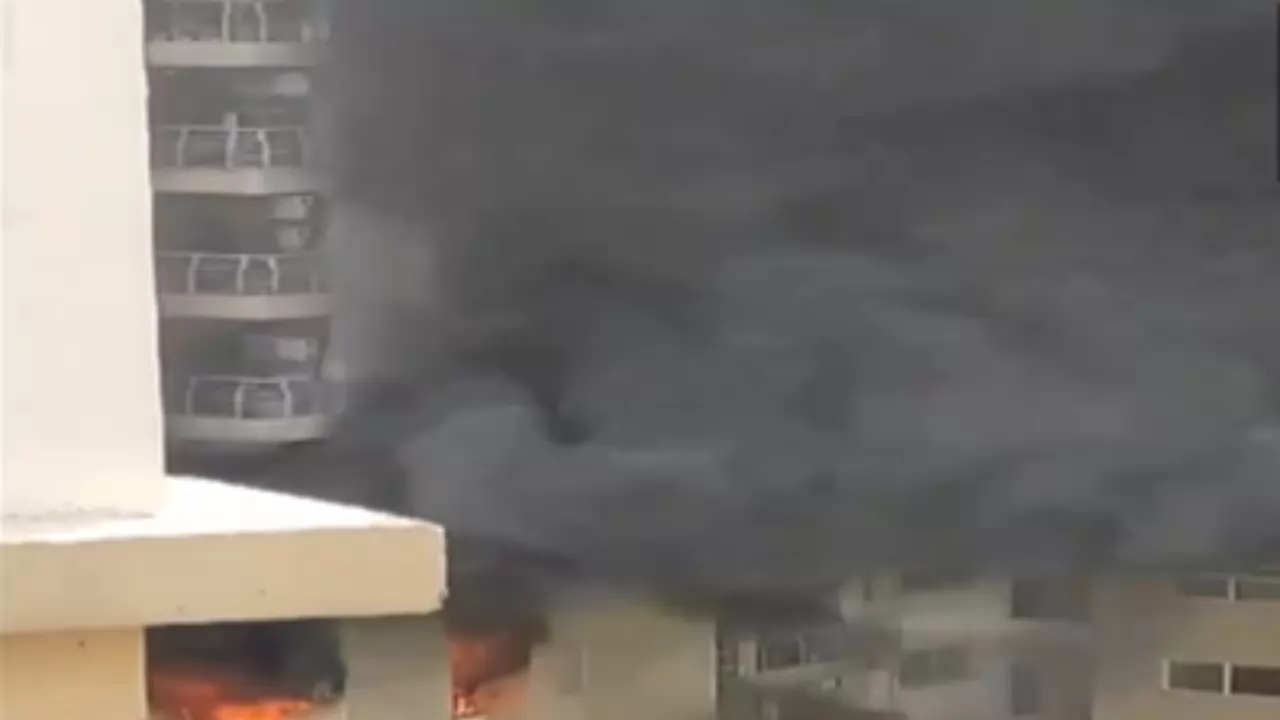
X
A massive fire broke out in a flat at Lotus Bluebird society in Noida's Sector 100 after a blast in the air conditioning unit. The AC exploded like a bomb and the entire flat caught fire due to sparks. The blaze, which comes amid a searing heatwave in the national capital, led to panic among the residents.
#WATCH | Uttar Pradesh: Fire broke out at Lotus Boulevard Society in Noida's Sector 100.
— ANI (@ANI) May 30, 2024
(Video Source: Local resident) pic.twitter.com/d3tU4Y4hHx
In the video that has surfaced on social media, a flat between high-rise buildings is seen on fire. The flames can be seen only from outside. A plume of smoke is also visible coming out of the building. From the visuals emerging, it appears that a massive fire has occurred due to an AC explosion. At present there is no news of any damage, but more details related to this news are awaited.
As the scorching heat is increasing across North India, the use of AC is also increasing. People keep ACs running for a long time to get relief from the heat in their homes. Already this summer, cases of fire due to exploding air conditioners have been reported from many places. The heat broke all records in Delhi on Wednesday and the maximum temperature was recorded at 52.9 degrees Celsius in Mungeshpur area. Which is the highest temperature ever recorded in the national capital.
Fire brigade personnel said that there has been no financial loss and loss of life. The fire started due to AC burst and people gathered courage and stopped the fire from spreading further by throwing water.
Overheating of Components: During extreme heat, AC units have to work harder to cool indoor spaces, leading to overheating of components such as the compressor and the motor. Overheating can cause these components to fail or even explode if not properly maintained.
Increased Pressure: The refrigerant in AC systems operates under pressure. High ambient temperatures can cause the pressure inside the refrigerant lines to increase significantly. If the pressure exceeds the system's design limits, it can result in a rupture or explosion.
Electrical Overload: High temperatures can lead to electrical overloads in AC units. The increased demand for cooling can cause electrical components to overheat and fail, potentially leading to fires or explosions.
Poor Maintenance: Lack of regular maintenance can exacerbate issues during hot weather. Clogged filters, dirty coils, and low refrigerant levels can cause the system to overheat and malfunction. Regular maintenance helps ensure that the AC unit can handle high temperatures safely.
Faulty Installation: Improper installation of AC units can lead to malfunctions under stress. Incorrect wiring, insufficient ventilation, or improper sizing of the unit for the space it cools can all contribute to failures during periods of extreme heat.
Aging Equipment: Older AC units are more susceptible to failures under stress. Worn-out components, outdated technology, and general wear and tear can make older units less capable of handling high temperatures safely.
Environmental Factors: In addition to high temperatures, other environmental factors such as dust, debris, and humidity can affect the performance of AC units. These factors can cause additional strain on the system, leading to potential failures.





Copyright © 2026 Top Indian News
